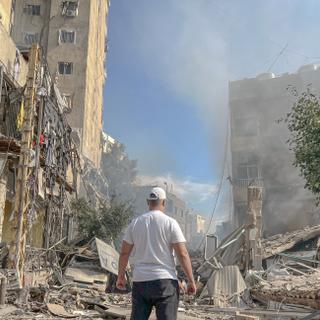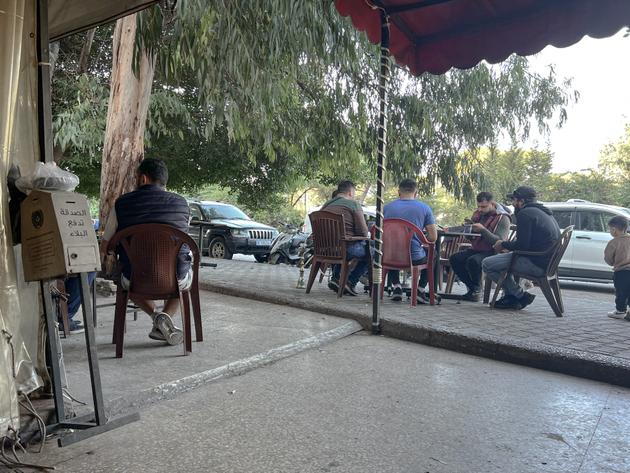


Israel-Hezbollah war: Dahiyeh has become Beirut's ghost suburb
FeatureA Hezbollah stronghold as well as a residential area, the southern outskirts of the Lebanese capital are relentlessly struck by Israel.
The detonation that shook the neighborhood left them seemingly unperturbed. Sitting on plastic chairs in a small café in Ghobeiry, Hassan and Mohamed, in their 40s and with eyes reddened by a sleepless night, both had one leg shaking continuously. The two neighbors, a driver and a restaurant owner, said they are physically and nervously exhausted. In this fragile island of life, despite the smell of burning that filled the air, people chatted over hookahs, their eyes fixed on cell phones, trying to locate the Israeli army's latest target. "The five-story building near the garage?"

For the inhabitants of Beirut's southern suburb of Dahiyeh, with its Shiite majority, fear has a face that appears daily on the social media network X: that of Colonel Avichay Adraee, the Israeli army's Arabic-speaking spokesperson. He's the one who announces the bombings. He's the one who forces the few people who still stay in Dahiyeh, emptied of its million inhabitants, to take turns at night to keep an eye on social media while others sleep. In the early hours of the morning, armed men fired in the air to order the slumbering to leave their homes.
On November 14, Hassan and Mohamed left in a hurry at around 3 am and slept in a car before returning. "Even the birds are fleeing this place," said Hassan bitterly, pointing to a flock of seagulls heading out to sea. The two men evacuated their families a month ago but stayed behind to keep an eye on their apartments and those of their neighbors. They described themselves "civilians, far removed from politics." Mohamed, who worked "in Côte d'Ivoire for more than 15 years," switched from Arabic to French with an Ivorian accent to talk about an uncertain future: "I came back to open a business. I have a restaurant, five employees and as many families to feed. It's been closed since September 23 [the day strikes killed 569 people in the country, many of them in Dahiyeh]. Okay, I still have a home. But for how long?"
Gaping wounds
Ibrahim, who made no secret of his sympathies for Hezbollah, also spends his days in Dahiyeh. The 28-year-old night taxi driver, whose wife and young daughter have taken refuge between Sidon and Nabatieh, an area exposed to Israeli fire, has stayed on to watch over his neighborhood with a few neighbors in the southern part of Haret Hreik, a middle-class shopping area where Hezbollah houses the headquarters of its associations. "With no water, electricity or shops to stock up on supplies." His building is miraculously still standing. Two adjoining ones were destroyed by the strikes. While he "unreservedly supports the resistance," he said, "There were no weapons. If there had been, the whole neighborhood would have been blown up." This argument is often heard among Hezbollah supporters.
You have 65.27% of this article left to read. The rest is for subscribers only.
